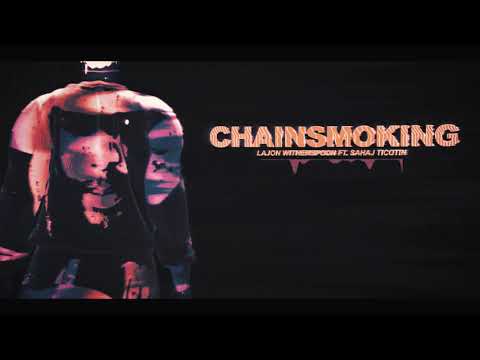
Twitter is, right now, brilliantly political, giving its users a voice to speak up on social matters. All kinds of revolutions are taking place online, including the most essential: #blacklivesmatter. We’ve seen many public and out-of-the-box thinkers speaking up against racial injustice directed at the black community, including actors Keke Palmer to and John Boydega, who have risked their careers to speak out against black adversity, as well as being advocates for the changes needed because it’s 2020 and the world is tired of inequality.
Which brings us to Bronzeville, Chicago rapper and poet Noname. She has always stood up for what she’s believed in, whether she’s educating her fans on topics such as sexual liberation or simply uplifts her fellow black peers.
For a great example of this, look no further than her 2016 debut, ‘Telefone’, where her skippy flows mimic the paranoia a Chiagoan may experience while living in one of the dangerous cities in the world. Relaying her ‘hood blues over jazzy, pixelated instrumentals, tracks such as ‘Yesterday’ (“Check my twitter page for something holier than black death”) and ‘Casket Pretty’ (“Badges and pistols rejoice in the night / And we watch the news, and we see him die tonight”) tell the world that police brutality and hate crimes are not a sporadic thing.
However, it seem Noname’s efforts to shed light on these horrors aren’t good enough for her peers – this week Dreamville Records co-founder J. Cole released ‘Snow On Tha Bluff’, a social commentary track about his thought on the current BLM movement, in which he brings down the ‘Diddy Bop’ rapper for… attempting to instigate equality.
Noname recently tweeted and deleted the phrase ‘QUEEN TONE!!!!!!’ – a celebration of her outspoken nature – and on ‘Snow On Tha Bluff’, Cole attempts to rebuke her with the claim that it “tone that’s botherin’ me” . He asks: “Fuck is the point of you preaching your message to those that already believe what you believe? /” I’m on some ‘Fuck a retweet’”,
Probably one of the most political rappers of a generation, Noname is still sick of the racial inequality black people have to face. So instead of being overlooked by her rapping peers and performing for predominantly white crowds because she doesn’t “want to dance on a stage for white people”, she’s gone on a musical hiatus and used the time to help educate her fans.
With quarantine and the resurgence of Black Lives Matter, she’s restocked her online book club – whereby titles and ideas are exchanged in Twitter – to ensure it’s full of insightful tales about race, gender and other factors in POC’s adversity. In addition, she’s been using her worldwide reach to highlight current injustices still practiced today. And all of this while feeling that she and a few others are doing all the leg work to get their fans to understand the struggles of black people who birthed hip-hop and other elements of black culture they enjoy. She wondered: where are the other stars?
Many cowered behind the excuse of needing to educate themselves before they spoke out in solidarity with the BLM movement. When there was an online backlash against ‘Snow on Tha Bluff’, Cole rowed back from the track, praised Noname and claimed: “I haven’t done a lot of reading and I don’t feel well equipped as a leader in these times.”
Yet this doesn’t change the fact that his song undermined Noname and the power of her knowledge, making it seem that not talking at all (as he’s done) is better than her attempt at activism. His criticism of Noname’s vocal resistance to injustice dilutes her genuine anger, making her seem less than credible. He perpetuates ‘the angry black woman’ trope, making it seem that she’s who’s “mad at my n****s”, “mad at our ignorance”, and “mad at the celebrities”. Noname’s attempt to educate rap fans – globally – may now be tainted by his criticism.
The one detrimental flaw to Twitter is its cancel culture, which is ready to get rid of you if you do the smallest thing wrong. But when it comes to cancelling J. Cole, who is deemed to be one of the best rappers ever, there’s a danger that his extensive fan base will simply disregard any slander toward him and throw it back in Noname’s face. At least fellow Chicagoan Chance the rapper has stood up for her.
In the past two weeks, black twitter has been pleading for black men to take care of their own. And by this, we meant not to put them in harm’s way whether it’s physically, mentally or digitally. Noname has been, and will always be, one of the truest representations of black women in rap. Not because she isn’t hyper-sexualising herself for male consumption and boasting about her money, men, and frivolous things with an outlandish body: it’s because, being nameless, she makes you care about her message more than her lifestyle.
The positive attention her platform has received recently is teaching her fans the truth about the extensive history of black discrimination. And although it’s not Noname’s (or any black person’s, in all honesty) responsibility to educate others, she provides great resources to do so.
Cole doesn’t have a right to gaslight his fellow peer, especially if she is trying to be a force for black solidarity. Cole knows that his most powerful asset is his voice, and this time he used it regressively. But hopefully, with her name ironically plastered everywhere, Noname can grab mass attention and show the world why she and other black women are just as important in the the fight against racial inequalities as anyone else.
The post Forget the beef with J. Cole – here’s why Noname is such an essential voice appeared first on NME Music News, Reviews, Videos, Galleries, Tickets and Blogs | NME.COM.






